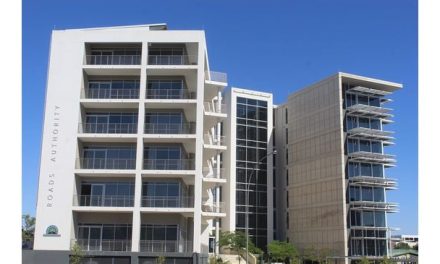
UN Security Council reforms – Africa demands action
The African Union’s position on the global governance and political system is clear – “reform the United Nations Security Council”.
This common position was reiterated at the 26th African Union (AU) Summit held in Addis Ababa, Ethiopia, when the continent said the UN Security Council is out of date and out of touch with reality.
For example, the council, which is tasked with the primary duty of maintaining international peace and security, continues to be dominated by a few powerful nations at the expense of the majority.
Of the five permanent members with veto power, none is from Africa yet the continent provides the largest membership of the UN.
The UN is made up of 193 member states. Of these, 54 are in Africa, 53 in Asia-Pacific, 23 in Eastern Europe, 28 in Western Europe and 33 in Latin America and the Caribbean. The State of Palestine and the Holy See (Vatican) have observer status.
The five permanent members are the United States of America, Russia, the United Kingdom, France and China. They enjoy a veto right, meaning that the council can not implement any decision if one of the five permanent members objects.
In addition, the council is made up of 10 other non-permanent members elected for two-year terms by the UN General Assembly. These members do not have veto powers.
A country which is a member of the UN but not of the Security Council may participate or be invited, without a vote, to its discussions when the council considers that interests of the country are affected. Conditions of participation by such a member are set by the council.
Currently, the council is dominated by a few countries that were victorious in a war fought some 70 years ago, and thus determine every important decision on peace and security in the world.
Ironically, Africa is the recipient of most declarations on peace and security but continues to be marginalized in influencing such decisions.
Africa’s common position on the UN Security Council reforms is contained in the Ezulwini Consensus made in Swaziland in 2005 and adopted the same year at an Extraordinary Session of the Executive Council of the AU in Ethiopia.
Even though the Ezulwini Consensus is based on the idea of regional representation as opposed to the current UN system which focuses on representation of countries on the basis of their individual merit, the adoption of such a consensus by Africa is nevertheless a step in the right direction.
A permanent seat for Africa on the UN Security Council will allow the continent to at least have some voice in all decision-making organs of the UN, setting the stage for the reconstructing of global affairs.
The consensus calls for the need to expand the size of the council from 15 to 26 members, with fair representation of Africa.
“Africa’s goal is to be fully represented in all the decision-making organs of the UN, particularly in the Security Council, which is the principal decision-making organ of the UN in matters relating to international peace and security,” reads part of the Ezulwini Consensus.
“Full representation of Africa in the Security Council means not less than two permanent seats with all the prerogatives and privileges of permanent membership including the right of veto, and five non-permanent seats.”
In principle Africa is opposed to the veto provision, still the continent is of the view that so long as it exists and as a matter of common justice, veto power should be made available to all permanent members of the council.
On the issue of the selection of Africa’s permanent representatives in the council, the Consensus states that “the question of the criteria for the selection of African members of the Security Council should be a matter for the AU to determine, taking into consideration the representative nature and capacity of those chosen.”
On the five non-permanent seats, the Ezulwini Consensus states that these will rotate between African countries, one for each of the five regions namely North, East, West, Central and South.
While amendment to the UN Charter to effect reform of the Security Council requires a two-thirds majority out the 193 UN members, some of the five permanent members, particularly France, UK and the US have openly objected to this.
The African Union is convinced that the time is ripe for Africa to influence the proposed UN reforms, and reconstruct global affairs, which has for many years benefited a few selected countries at the expense of the majority.











































